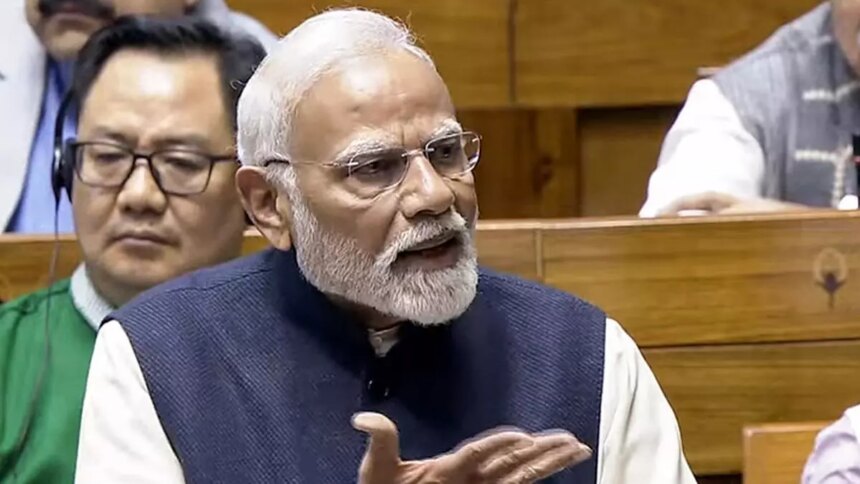Prime Minister Narendra Modi proposed 11 key commitments aimed at upholding the spirit of the Constitution and realizing India’s aspiration to become a developed nation by 2047. Among these pledges are inclusive development for all and a strong stance against corruption.
During his nearly two-hour address in the Lok Sabha, which concluded discussions on the remarkable 75-year journey of the Indian Constitution, PM Modi emphasized the importance of fulfilling basic duties, urging both the government and individuals to contribute to this goal. “India’s progress towards becoming a developed nation is inevitable if every Indian adheres to their basic responsibilities,” he stated.
The pledges outlined by Modi include the concepts of “Sabka Sath, Sabka Vikas” (all-inclusive development), a firm zero-tolerance policy towards corruption, the need to instill national pride while shedding colonial attitudes, the elimination of family-dominated politics, a commitment to respecting the Constitution without weaponizing it, and promoting India as a benchmark for women’s empowerment. He also highlighted the vision of “One India, Best India.”
“Sabka Saath, Sabka Vikas is more than just a phrase; it’s a fundamental belief for us. We will work to ensure that benefits reach every individual,” he affirmed.
Modi differentiated between constitutional amendments made by the Congress Party and those by the National Democratic Alliance (NDA), arguing that his government’s changes aimed at unifying the country rather than consolidating power. He targeted the Nehru-Gandhi family of the Congress, accusing them of undermining constitutional integrity during their decades in power. “This family has persistently challenged the Constitution,” he remarked, referencing actions taken by former Prime Ministers Jawaharlal Nehru, Indira Gandhi, and Rajiv Gandhi. He also implied that their descendants, including Rahul Gandhi and Priyanka Gandhi Vadra, continue this trend.
Modi pointed out his government’s significant steps, such as the repeal of Article 370 to promote national unity and the introduction of the Goods and Services Tax (GST) to implement a “one nation, one tax” policy.
Reflecting on India’s progress since the Constitution was adopted in 1949, he described the nation’s journey as “extraordinary.” He expressed pride in India’s ancient democratic roots, declaring that India isn’t just a large democracy, but the “mother of democracy.”
He reiterated that India’s ambition to become a developed country by 2047 hinges on its unity, stating, “Our Constitution forms the foundation of our unity.”
In contrast, Rahul Gandhi, the Leader of Opposition, criticized the ruling Bharatiya Janata Party (BJP), referencing V.D. Savarkar’s dismissal of the Constitution to highlight what he perceives as contradictions within the BJP regarding constitutional loyalty. Gandhi argued that the BJP and RSS align themselves with the Manusmriti, implying that the governing principles of the country should stem from the Constitution instead.
Drawing a comparison to the mythological figure Eklavya, who sacrificed his thumb as a fee for his teacher, Gandhi accused the government of creating monopolies favoring the Adani Group, mishandling the Agnipath military recruitment scheme, and suppressing farmer protests with violence, as well as other controversial policies.










